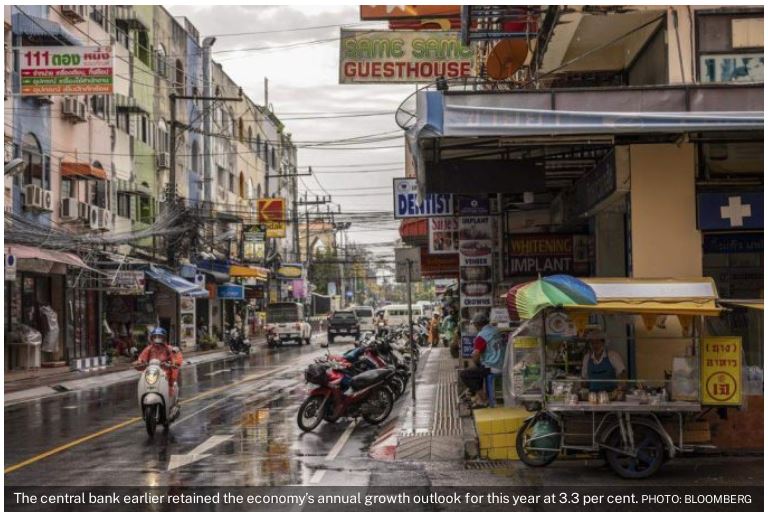Financial stability keeps Thai rates from rising fast
THE need for financial stability, one of the three main objective of the Bank of Thailand (BOT), is keeping monetary policymakers in the South-east Asian nation from raising interest rates too fast.
While trends in economic growth and inflation may support the case for a faster monetary policy normalisation, doing so would unhinge financial stability, BOT deputy governor Mathee Supapongse said on Saturday (Oct 1), during an annual interaction with the media at a mountain resort 184 kilometres outside Bangkok.
“We can’t raise rates hard and fast as we need to balance the three objectives,” he said, adding that the central bank needs to think about those indebted sensitive groups who will suffer from higher rates.
More so, the Thai economy is still not back to pre-Covid levels and inflation will likely ease going forward, Mathee said.
That explains why the Thai central bank stuck to its gradual and measured approach to fighting South-east Asia’s fastest inflation, with a quarter-point rate increase in September, despite peers Philippines and Indonesia tightening aggressively. Even neighbour Vietnam has resorted to a 100 basis-points increment after the US Federal Reserve’s hawkish rhetoric on curbing price gains.
“The Thai Policy response is different from other countries as we want to ensure a smooth take-off,” BOT governor Sethaput Suthiwartnarueput said at the same meeting, as he reiterated a message to drive home the point that Thai inflation wasn’t demand-driven like that in the US.
Sethaput also flagged the need to bring down Thailand’s household debt levels to below 80 per cent of gross domestic product level prescribed by the Bank for International Settlements from the current close to 90 per cent.
The high household debt will likely obstruct economic recovery, he said.
The central bank earlier retained the economy’s annual growth outlook for this year at 3.3 per cent, which will be the slowest pace in the region. Growth next year is expected to improve slightly to 3.8 per cent, although lower than the 4.2 per cent forecast previously. The central bank sees headline inflation to average 6.3 per cent this year, and fall back within target to 2.6 per cent next year. BLOOMBERG


 English
English




